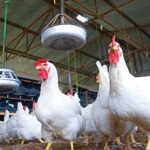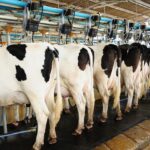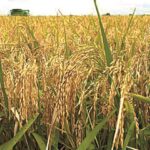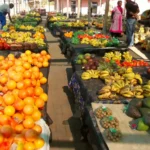BACKGROUND
The Special Agro-Industrial Processing Zones (SAPZ) Programme is a flagship initiative of the Federal Government of Nigeria, supported by the International Fund for Agricultural Development (IFAD), aimed at promoting inclusive and sustainable agricultural transformation through agro-industrialization. The Programme aims to enhance productivity, create employment opportunities, improve nutrition, and ensure sustainable livelihoods across value chains across the participating states namely: Kano, Ogun, Imo, Kaduna, Cross River, Kwara, Oyo) and Federal Capital Territory (FCT) in the first phase. SAPZ, a comprehensive agro-industrialization Project is designed as a tool for creating integrated, agricultural-focused platforms that will accelerate private sector investment in value added agro- processing to unlock opportunities for improved food security, job creation, import substitution, rural poverty reduction and increased contribution of agriculture to national GDP.
The overall Project Development Objective is to support the development in high food production areas to supply domestic food market and create exportable surpluses as well as capacitate smallholder farmers, small agro – processors and traders and community-based service providers including women and youth, to take advantage of the market demand created by SAPZ to sustainably enhance their income, household food security and resilience to climate change. The Program has four broad components namely: (i) Infrastructure Development and Management of Agro- Industrial Hubs (AIHs) (ii) Agricultural Productivity, Production, Market Linkages and Value Addition in SAPZ Catchment Areas (iii) Policy & Institutional Development Support and (iv) Program Coordination and Management. SAPZ Project aligns with Federal Government Agriculture Policies and Strategies to turn the country’s huge food deficit into a market and employment opportunity for smallholder farmers.
For years, the IFAD programme in Nigeria has been financing projects that seek to develop value chains with the specific aim of improving smallholder incomes, well-being, and food security. In addition, it has up-scaled to make its value chain projects ‘nutrition-sensitive’ through partnerships and learning with governments and other donors. To leverage effectively and efficiently for sustainability, IFAD-funded projects of CASP, VCDP, LIFE-ND best practices will pave the way for SAPZ to gain lessons, knowledge, skills and practices for nutrition education, awareness creation, and advocacy, including VCDP, CASP, LIFE-ND core outcome indicators, nutritional key messages, case studies, best practices documentaries, Application of Smart technology in Food demonstrations preparations, visual learning aids, among others.
As part of the nutrition-sensitive component of SAPZ, the Kano State Project Implementation Unit (SPIU) intends to engage a qualified consultant or firm to develop and produce Key Nutrition Messages that will serve as training tools for Farmer Organizations (FOs), beneficiaries, and extension facilitators. These messages will form the foundation for nutrition education sessions aimed at improving dietary diversity, household food utilization, and community health outcomes, particularly among women and youth.
This consultancy is critical to advancing the SAPZ’s nutrition objective of improving knowledge, attitudes, and practices related to healthy diets, sustainable food choices, and disease prevention.
- PURPOSE OF THE ASSIGNMENT
The purpose of this consultancy is to design, develop, validate, and produce Key Nutrition Messages tailored for training and sensitization activities under the Kano and Ogun SAPZ Programme. The outputs will be used in capacity-building sessions, community outreach, and home gardening trainings to improve nutrition literacy and dietary behavior among project beneficiaries. - OBJECTIVES OF THE ASSIGNMENT
The consultancy aims to:
i. Develop culturally appropriate, evidence-based, and gender-responsive nutrition messages and tools for use in SAPZ training programmes.
ii. Strengthen the capacity of Farmer Organizations and extension agents to communicate essential nutrition messages effectively.
iii. Promote awareness of the relationship between nutrition, productivity, and overall health among rural households.
iv. Support improved dietary diversity, healthy eating habits, and sustainable food consumption patterns.
v. Integrate climate-smart and sustainable dietary practices into nutrition messaging.
vi. Contribute to reducing malnutrition and diet-related illnesses within project communities.
Kindly down the attached document for more details please.
REOI-for-the-Development-of-Key-Nutrition-Messages
Download






Recent Comments